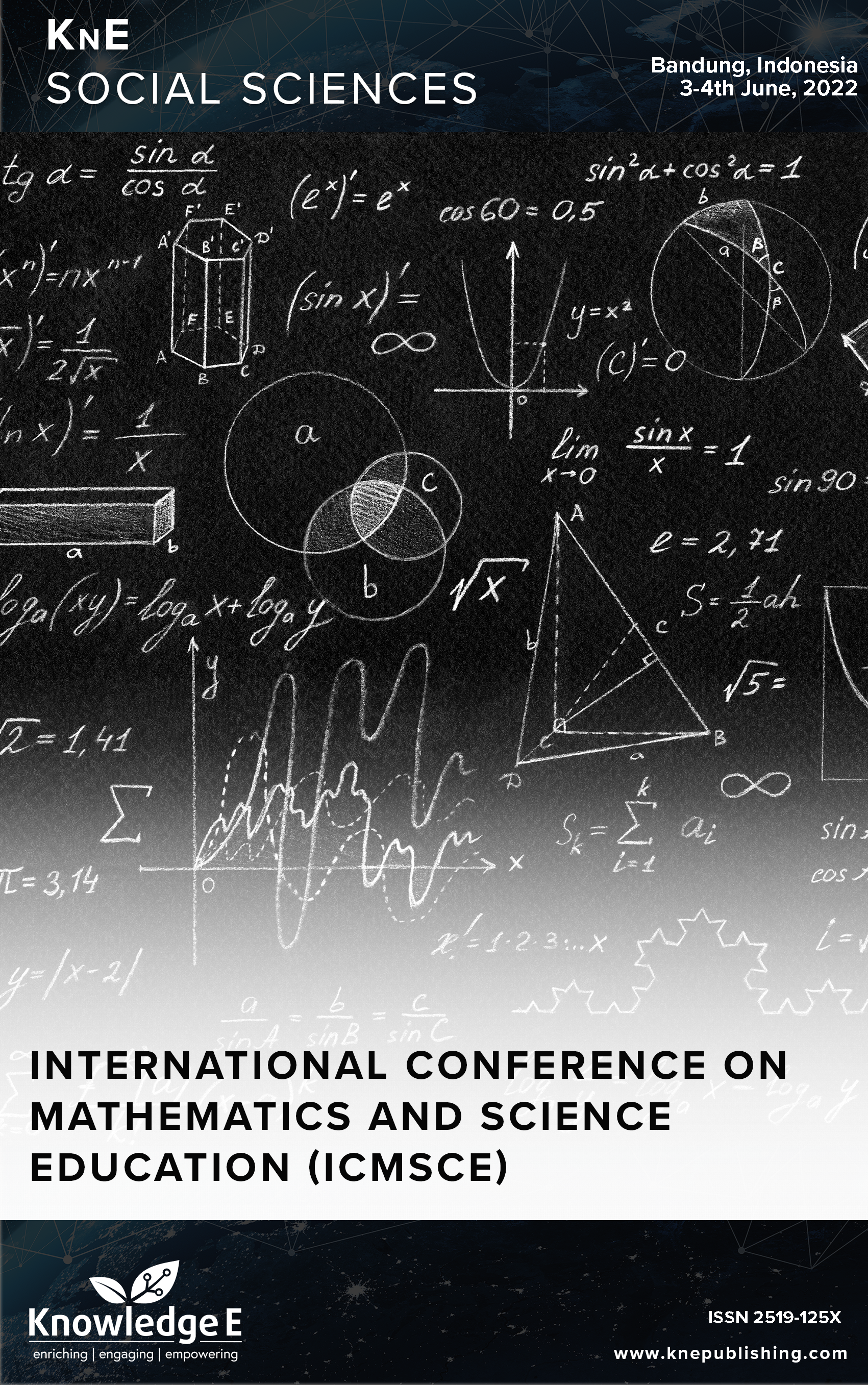Developing a Hydrocarbon Electronic Book to Develop Students Critical Thinking Skills Through the 4S TMD Method
DOI:
https://doi.org/10.18502/kss.v9i8.15561Abstract
This study aimed to develop an electronic book on hydrocarbon study materials using the Four-Steps Teaching Material Development (4S TMD) method to develop students’ critical thinking skills. To achieve this goal, an electronic book was developed using the 4S TMD method, which will be tested using the Development Research (DR) research method which consists of three stages: design, development, and evaluation. At this stage the study was the first part of the development of teaching materials which consisted of four stages: selection, arrangement, characterization, and didactic reduction. The results of the research were focused on the selection stages. At the selection stage, the development of teaching materials begins with the development of learning indicators, the development of the concept of hydrocarbons based on curriculum demands, the development of basic concepts sourced from international textbooks, and finally, the development of skills that can be integrated with the concept of hydrocarbons. The results of the selection stage were evaluated by expert lecturers in the field of chemistry education.
Keywords: electronic book, hydrocarbon, 4S TMD, critical thinking skills
References
AlMaadeed MA, Ponnamma D. Role of research and higher education on industry 4.0, material science as an example. 2020 IEEE International Conference on Informatics, IoT, and Enabling Technologies. 2020;435–439 DOI: https://doi.org/10.1109/ICIoT48696.2020.9089662
Burrus J, Jackson T, Xi N, Steinberg J. Identifying the most important 21st century workforce competencies: an analysis of the occupational information network (O*Net). ETS Res Rep Ser. 2013;2013(2):i–55. DOI: https://doi.org/10.1002/j.2333-8504.2013.tb02328.x
Winkler MA, Schur JD. Evaluation of a supplemental enzyme immunoassay and radioimmunoprecipitation assay for confirmation of seroreac tivi ty. Transfusion. 1995;35:219–25. DOI: https://doi.org/10.1046/j.1537-2995.1995.35395184278.x
Octavianelis AADF. Pengaruh model problem based learning terintegrasi STEM terhadap kemampuan berpikir kritis siswa. Journal of Educational Chemistry. 2020;2(1):33-39. DOI: https://doi.org/10.21580/jec.2020.2.1.5434
Khairini K, Khaldun I, Pada AU. The effect of student worksheets through the edmodo network on concept understanding and independent learning on hydrocarbon materials. Jurnal Penelitian Pendidikan IPA. 2021;7(3):429–36. DOI: https://doi.org/10.29303/jppipa.v7i3.701
Pranomo MI, Linda R, Haryati S. Jurnal riset pendidikan kimia article. Jurnal Riset Pendidikan Kimia. 2021;11(1):11–24. DOI: https://doi.org/10.21009/JRPK.111.07
Rahmawati SY, Ashadi, Susilowati, Student’s profile about critical thinking ability on hydrocarbon compounds concept. AIP Conference Proceedings. vol. 2014, p. 2018. DOI: https://doi.org/10.1063/1.5054451
Wahyudin ZR, Dahlan JA, Critical thinking skills watson- glaser ’ s critical thinking skills. 2nd International Conference on Statistics, Mathematics, Teaching, and Research. 2018.
Medriati R, Hamdani, Harjilah N. The difference in the guided inquiry model towards critical thinking skills in physics subject at SMAN 3 Kota Bengkulu. Journal of Physics: Conference Series. 2021;1731(1). https://doi.org/10.1088/1742-6596/1731/1/012074. DOI: https://doi.org/10.1088/1742-6596/1731/1/012074
Nurmi S, Jaakkola T. Effectiveness of learning objects in various instructional settings. Learn Media Technol. 2006;31(3):233–47. DOI: https://doi.org/10.1080/17439880600893283
Kisno K, Sianipar O. Perbandingan efektivitas buku digital versus buku cetakan dalam meningkatkan performa belajar mahasiswa. Jurnal Ekonomi dan Ekonomi Syariah. 2019;2(1). https://doi.org/10.36778/jesya.v2i1.49. DOI: https://doi.org/10.36778/jesya.v2i1.49
Yang L, Weng T, Yang D, Wu P. The effectiveness of digital teaching materials on introduction statistics. BT - Proceedings of the 2014 International Conference on Education Reform and Modern Management. 2014. DOI: https://doi.org/10.2991/ermm-14.2014.73
Basarmak U; U. BASARMAK. The effect of digital teaching material (public service ad) development process on preservice teachers’ creative thinking skills. Malaysian Online Journal of Educational Technology. 2019;7(4):126–44. DOI: https://doi.org/10.17220/mojet.2019.04.009
Sofyan H, Anggereini E, Muazzomi N, Larasati N. Developing an electronic module of local wisdom based on the area learning model at Kindergarten Jambi city. International Journal of Innovation, Creativity and Change. 2020;11(2):216–31.
Anwar S. Pengolahan bahan ajar (4 langkah pengembangan bahan ajar). Bandung; 2015.
Richey RC, Klein JD. Developmental research methods: creating knowledge from instructional design and development practice. J Comput High Educ. 2005;16(2):23– 38. DOI: https://doi.org/10.1007/BF02961473

